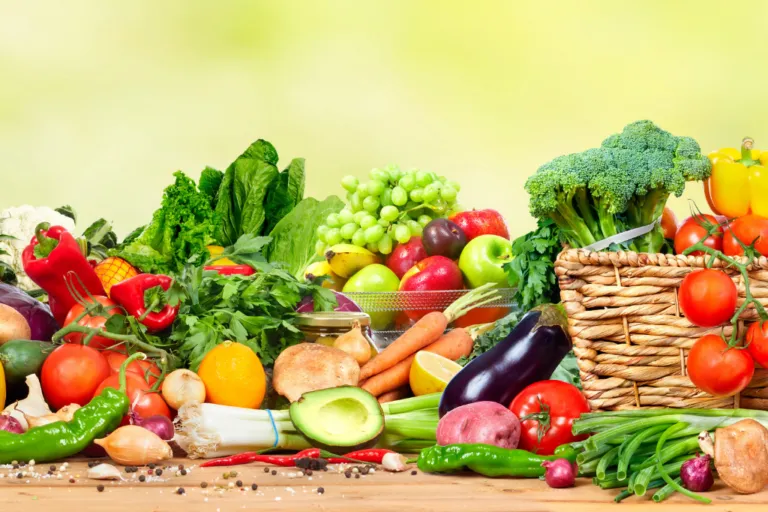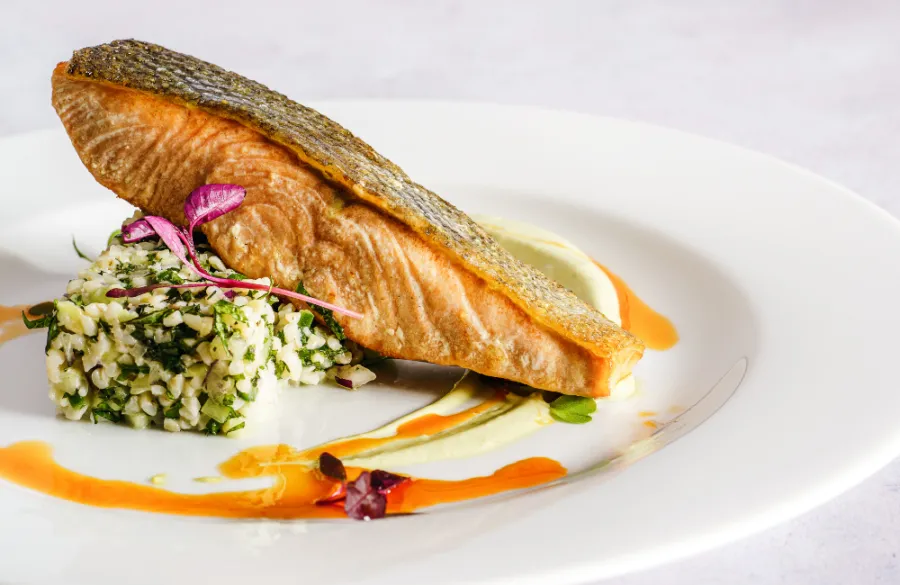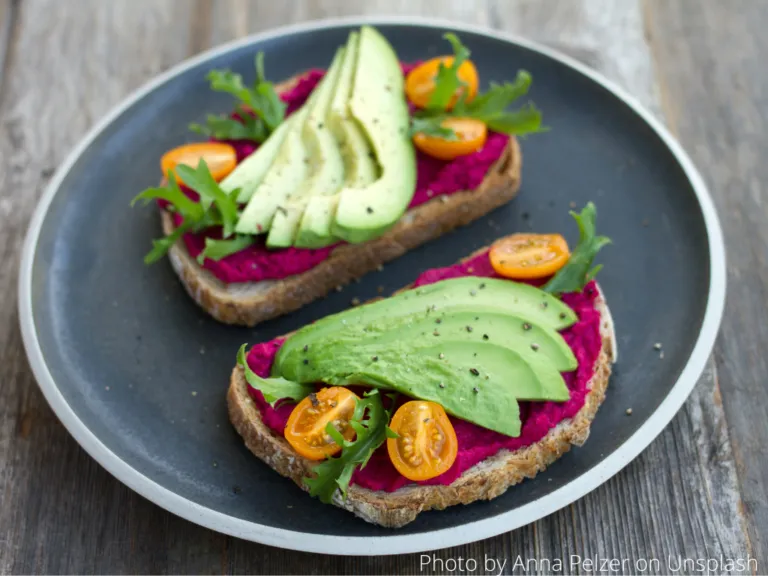My Blog

Beginner’s Guide: What is eating healthy food?
One of the cornerstones of good health is what you eat. You need good nutrition to provide the necessary materials for your body to function and repair itself. Being healthy isn’t about following the latest diet craze. It isn’t about being skinny. And it isn’t just about eating “superfoods”. So, let’s explore what is eating healthy food.
Drink water - your life depends on it!?

You need to drink water to live. Your body is about 60% and all your cells and blood are mostly water. Your cells are like a goldfish in a bag of water – no water means no functioning goldfish. Water also helps to regulate your body temperate and remove waste from your body. Drink about half your body weight (in lbs) in water (in oz). For example, if you are 100lbs, drink about 50oz of water. In kilograms, drink at least 30ml per kilo of body weight.
The key to eating healthy food - quality affects your health

Natural whole foods are nutrient-dense containing phytonutrients, enzymes, antioxidants, fibre, vitamins, minerals, amino acids – essentially, all the things you need to keep your body working like it should. The more a food has been processed, the less nutrition and fibre it will have. Sometimes nutrients are added to boost the nutritional value but it is still a processed food.
Some foods are higher in pesticide residues than other foods. The Environmental Working Group in the United States puts out the Clean 15 Dirty Dozen which is a list of commonly purchased produce with the lowest pesticide residue (Clean 15) and 12 with the highest. Get a printable version of the Clean 15, Dirty Dozen here. This list is updated every year and is specific to the US. I don’t think other countries have this kind of information publicly available but I expect that if similar farming methods are used, the high pesticide produce may be similar to the EWG list. For the full list of high pesticide produce, check out the EWG’s 2020 Shopper’s Guide to Pesticides in Produce™.
Get the Dirty Dozen organic if possible. The Clean 15 will be okay even if conventionally grown. Farmers’ markets may have organically grown produce even though it it not certified organic – ask questions and make up your own mind.
Organic is best but of course non-organic whole food is still better than junk food or no food.
Look for pastured or grass-fed organic meat and free range eggs.
Fish is a great source of protein and omega-3 however fish should be wild caught. Avoid large fish which may have higher levels of mercury. Good options are anchovies, mackerel, catfish, cod, haddock, hake, herring, perch, salmon, sardines, sole, trout. For a comprehensive list of mercury levels in different types of fish, see the NRDC’s smart seafood buying guide
Seed and nut oils go rancid when heated to high temperatures so use those as dressings. For cooking oils, use ghee (clarified butter from which the milk solids have been removed so it’s lactose free) or coconut oil for a vegan option. Ghee and coconut oil are solid at room temperature (unless you live in a hot climate) but liquid when warmed, so you may need to warm them a little first if you need a liquid.
Macros for optimal health?
In very simple terms,
Carbohydrates provide glucose for quick energy which is critical for your brain;
Proteins provide amino acids which are the building blocks of muscle, hormones and neurotransmitters;
Fats support healthy brain and nervous system function.
Within each group, some choices are better than others. For example, plant-based oils are generally a better fat option than animal fats. Some fruit and vegetables have a higher impact on your blood sugar (like watermelon and baked potatoes which have a high glycemic index) than others (like apples, grapefruit, carrots which have a low glycemic index). Pastured, grass-fed animal proteins are better choices. Wild caught fish have lower levels of mercury than farmed fish (try wild caught Atlantic salmon, sardines, trout, mackerel, cod).
Too much of anything is not good. Excess carbs can lead to high blood sugar and unhealthy weight gain. Too much protein puts a strain on your liver and kidneys. Too much fat could lead to inflammation and health issues like cardio-vascular disease, stroke, etc.
How do I get omega 3?
Your body cannot create it’s own omega 3 so you need to get it from food, like fatty fish, vegetable oils, nuts, seeds and leafy vegetables. Salmon and anchovies have a high omega 3 content. Farmed salmon may be higher in contaminants than wild caught salmon so wild salmon is a healthier option if you can get it.
It is recommended that you have salmon 2 to 3 times a week to get sufficient omega 3 through your diet. Pregnant women
Here are 5 salmon recipes to help you incorporate more omega 3-rich salmon into your diet. [insert pic]
https://ihliksir.com/salmon-couscous-salad/
https://ihliksir.com/miso-salmon-with-zucchini-noodles/
https://ihliksir.com/baked-salmon-with-zoodles-quinoa/
https://ihliksir.com/baked-salmon-tray-with-rice-tomatoes-2/
https://ihliksir.com/salmon-teriyaki-with-green-beans-sweetcorn-rice/
Chia seeds also contain a good amount of omega 3. Try this matcha chia pudding for a healthy treat.
https://ihliksir.com/matcha-chia-pudding/
So how much should you eat?

If you look at healthy diets from around the world where people are the healthiest, daily macros should be consumed in the following proportions:
Carbohydrates: 40% – 70% (from fruit, vegetables, starches and grains)
Protein: 10% – 20% (healthy animal or plant sources)
Fat: 10% – 30% (healthy fats)
It is recommended that you should have 7 – 9 cups of fruit and vegetables a day.
What does this look like on your dinner a plate?
In proportion to your own body, using your hands as a guide:
protein – the size of 1 palm
starches – one open handful
other cooked vegetables – 2 closed fists
fats – top of your thumb up to the first knuckle
Food sensitivities - when healthy food may not be good for you
If you develop a food sensitivity, your body is not able to properly process and digest that food. Symptoms can include chronic fatigue, weight gain, acne, migraines, bloating, gas, mood swings, brain fog, joint paint, swelling, stiffness, etc.
The most common food sensitivities are:
Gluten
Eggs
Dairy
Corn
Soy
Nuts
Seeds
If you are sensitive to a food, even a “healthy” food, your body cannot digest it properly and it will cause you health issues until you are no longer sensitive to that food.
Bio-individualisation - you ARE special!
Each person is different. Body type, culture, activity level, climate, gut health, food sensitivities, health issues, personal health goals – they all play a part in what you should eat to be healthy. If you’re trying to lose weight, your plate will have less starches and fats compared to someone who is trying to gain weight. Even your personal tastes and beliefs are important. Vegans certainly won’t follow a high protein meat diet. I personally don’t like kale even if it is a superfood. I really did try to eat it – I even made kale chips and I tried to “hide” it in a smoothie – it upset my stomach and my taste buds! So that’s out for me.
You can start with the basics (water, whole food, following the macro portions shown above) and then adjust for your personal preferences and requirements.
Conclusion
In summary, the most important principles of eating healthy are:
Drink plenty of water
Eat whole foods, look for toxin free (organic, free range, low pesticides, low mercury)
Eliminate food sensitivities & heal your gut
Eat your macros in the correct proportions for you
So, what is eating healthy food? At the end of the day, eating healthy food means eating food that is healthy for YOU. This may change over time, as your body changes and gets healthier.
If you need a little more guidance, including a full list of healthy pantry and fridge staples, get the Clean Eating Guide for Beginners.
Handcrafted by Coach Foundation | Copyright © 2023 Ihliksir Pty Ltd. All Rights Reserved.

Why take an omega 3 supplement?
Please assume that any/all of the links from this website are affiliate links from which we may receive a small ...

Beginner’s Guide: What is eating healthy food?
One of the cornerstones of good health is what you eat. You need good nutrition to provide the necessary materials ...

11 Ways to Improve your Self Confidence
Self confidence at work will do wonders for your life and career whereas a lack of confidence could hamper your ...

Impressing a Woman With Your Body Care
Stress is a useful and required for a normal, healthy, functioning body. In fact, a little stress is necessary in ...

Natural Ways to Help with Depression
Depression can be debilitating and can have a severe impact on your work and life. Learning natural...

Can exercise help with depression?
While people who suffer with depression often struggle with physical activity, you might well ask "Can exercise help with depression?" ...

Top 5 Foods that Reduce Stress
Stress causes damage to your body. Busy schedules, work deadlines, and other environmental factors promote stress and reduce the natural ...

Sleep Your Way to Better Leadership
“It takes courage to grow up and become who you really are and to lead others.” adapted from E. E ...

How to Eat Healthy When Eating Out
It's time to celebrate and everyone's going out, enjoying themselves. Do you go out with your friends and gorge on ...

Stay Healthy While Travelling
* The links on this page are affiliate links. If you make a purchase from my link, I may receive ...

20 Easy Healthy Lunch Ideas
Here are 20 very easy, healthy lunch ideas. I know that if it’s too hard, you won’t even bother – ...